The 90s were prime time to establish a JRPG series. With Dragon Ball Z giving anime a burgeoning popularity in the West, series like Final Fantasy and Dragon Quest having established conventions of the genre and Sony’s PlayStation brand looking for worthy contenders, Suikoden was a series that was in the right place at the right time. It was Konami’s hat thrown into the ring of a genre dominated by Square.
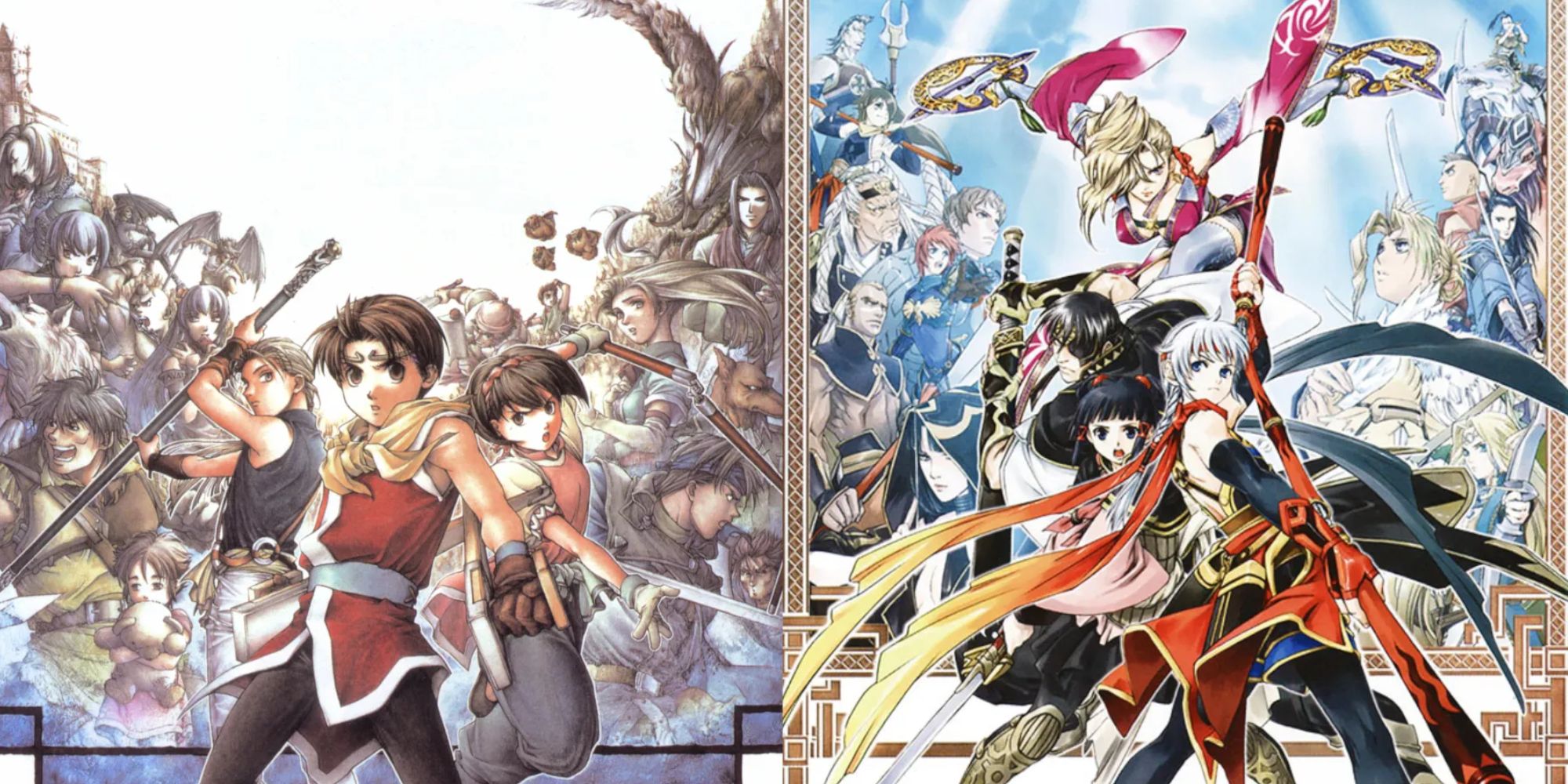
Related
The Best Suikoden Games, Ranked
The Suikoden series was first launched in 1996 in the west and quickly gained a cult following. We take a look at the best games in the series!
Though the series eventually fizzled out, its first two titles remain among the treasured memories of many PlayStation owners. The 2025 HD remaster allows you to revisit those memories, but is a crisper resolution all there is to it? Let’s find out.
8
Difficulty
The original versions of Suikoden 1 and 2 only had one difficulty level, but due to changing tastes the remaster adds three of them. The Normal difficulty is equivalent to the PS1 original, while the Easy mode allows you to enjoy the story with most battles beatable through simple auto-battling.
If you’re looking for a challenge, you can select Hard difficulty. Be advised that while you can switch between Normal and Easy at any time, starting on Hard locks you out of lowering the difficulty later on.
7
Sound
As is expected of a remaster, the HD editions of Suikoden 1 and 2 boast much clearer audio. The soundtrack has not been reorchestrated, but perhaps it didn’t need to be: the original versions of Suikoden 1 and 2 already had among the best-quality music the PS1 had to offer.
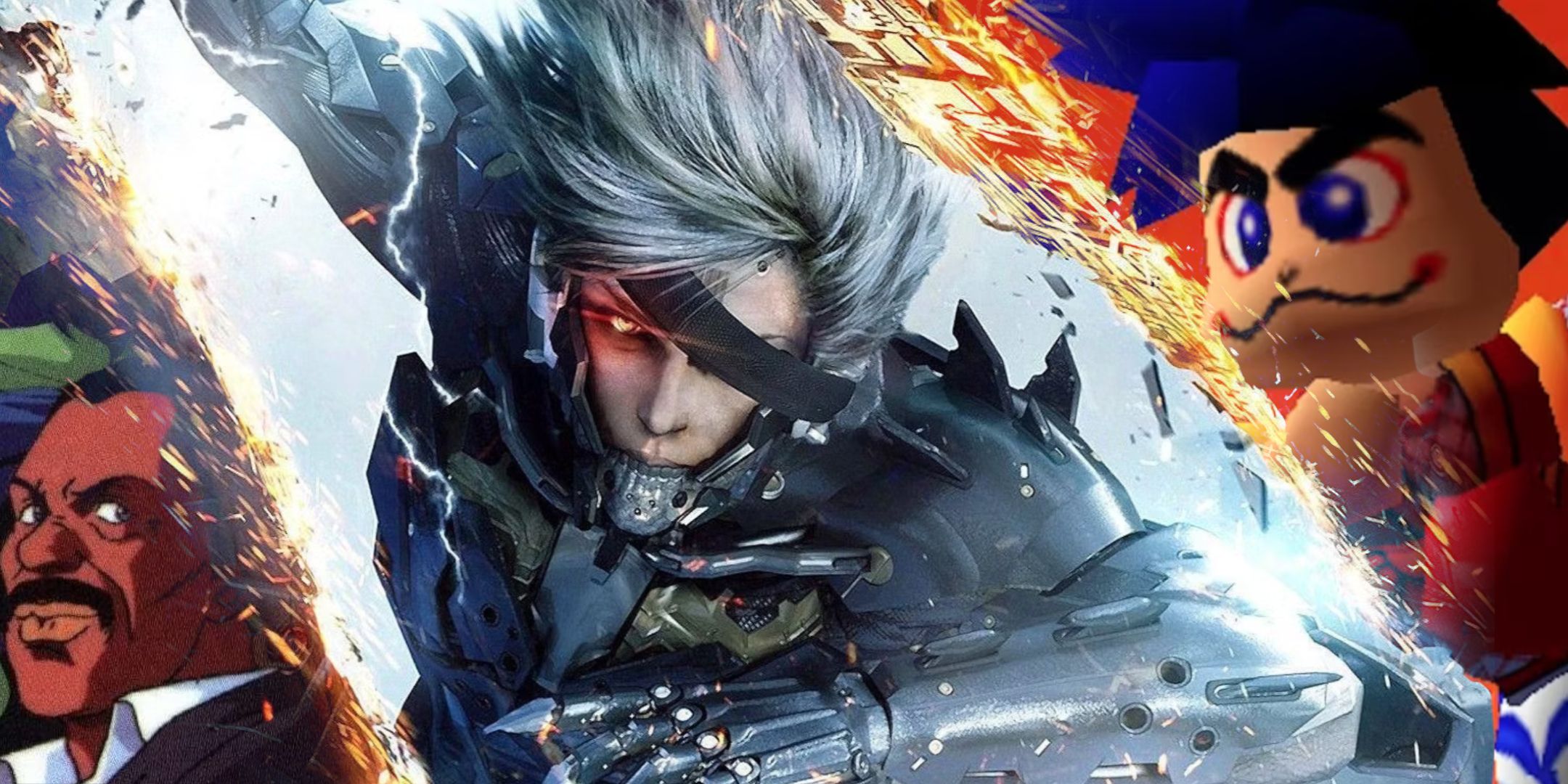
Related
What has been overhauled is the sound design: ambient noises and footsteps have been added to flesh out the game world to render it more believable. No more dashing in silence: the new ambient noise sounds nice and believable.
6
Saving
Back when Suikoden debuted, autosaves were barely even thought of. Save points in the original were few and far between, and losing would mean tons of lost progress. This has been mitigated by someone in the HD remasters, with the game autosaving regularly at certain points.
Not only that, but Suikoden 1 allows you to make a game clear save once you beat it and transfer that data to Suikoden 2. This is an exciting mechanic that wasn’t available in the original: save transfer allows you to level up returning characters, carry over your protagonist’s information and acquire certain items.
Transferring save data also gives you the ability to acquire a secret character, the son of Teo McDohl.
5
Interface
The original versions of Suikoden 1 and 2 featured era-appropriate user interfaces: basic, but functional. With HD graphics, however, come sleeker interfaces: the UI has been completely overhauled in the remasters. If you wish, you can adjust the opacity of the UI.
Characters’ portraits have also been completely redrawn, giving them beautiful new HD sprites to signify their faces. The UI overhaul casts the entirety of both games in a new light.
4
Combat
You’ve probably heard all the complaints about turn-based combat already: we know it’s slow and sometimes tedious, but in Suikoden, it’s worth sitting through for the excitement of beating a difficult boss and progressing the story.
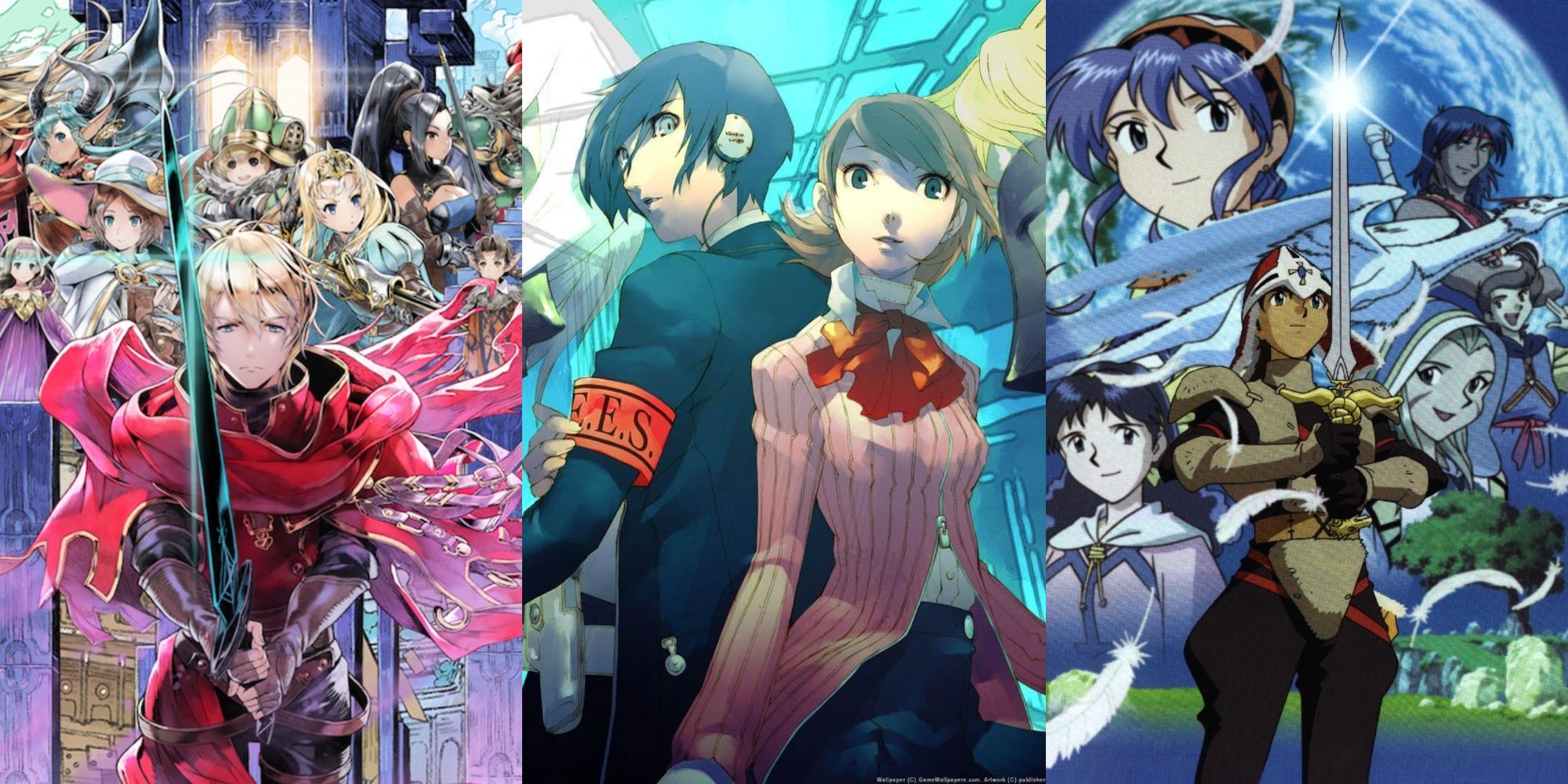
Related
26 Best Turn-Based JRPGs Of All Time, Ranked
A lot of great turn-based RPGs came from Japan. Here is a look at just a few of the best, ranked!
The HD remasters allow you to streamline the combat a fair bit, allowing you to speed it up and also turn on auto-battle. There are only a few hiccups in this: speeding up combat also speeds up the battle music, and auto-battle only allows your characters to do physical attacks, meaning it isn’t much use against bosses.
3
Message Log
One of the most surprising and welcome features in the Suikoden 1 and 2 HD remasters is the addition of a message log. It wasn’t until we experienced how useful this dialogue archive is that we realized how much of Suikoden’s dialogue revolves around NPCs giving you directions.
With the message log, you can forget about going back to ask NPCs again which direction your destination lies in. You can open it up at any time outside of combat, and it stores up to 100 messages. You can even pin messages you deem most useful so that they don’t get lost.
Be judicious in your conversations with NPCs, as some lines regarding the direction a destination is in are only said once and will disappear if you go past the 100-message limit.
2
Quality Of Life
The quality-of-life updates to Suikoden 1 and 2 are comprehensive and incredibly welcome. Autosaving and auto-battling aside, even navigation has been made much more intuitive. Given that the original Suikoden was among the earliest JRPGs on the PS1, it’s rather dated. The HD remaster gives it some much-needed updates.
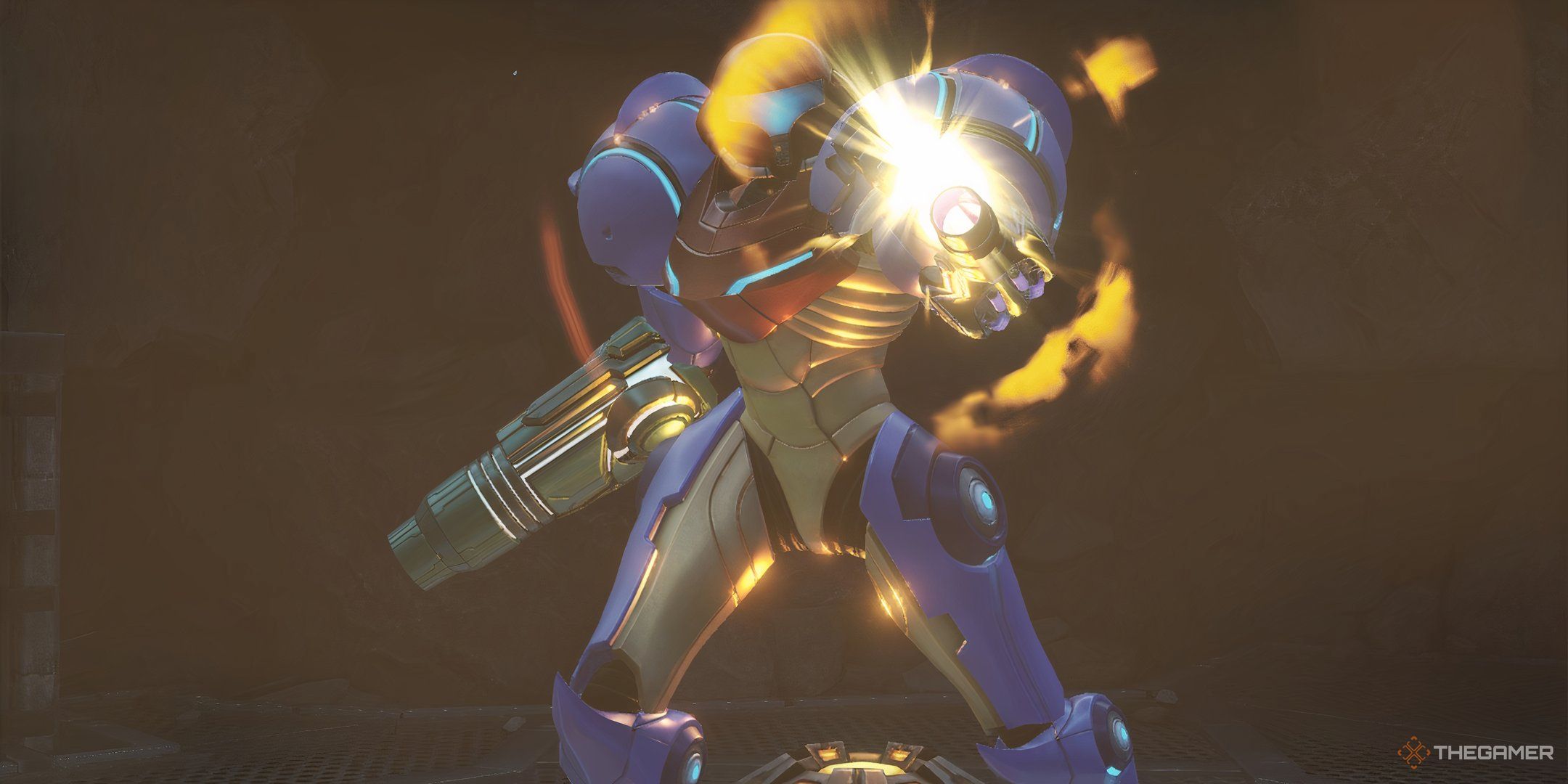
Related
Now your character can dash at any time and run in eight directions, and you can stop the clock in a timed portion of Suikoden 2 if you don’t want to feel rushed. These quality-of-life updates make Suikoden 1 and 2 much more digestible for a modern audience, and much easier to replay for returning fans.
Despite the quality-of-life features, the PC version has one glaring omission: a menu option that lets you exit to the desktop.
1
Graphics
The graphical overhaul of Suikoden 1 and 2 is, of course, the main draw of the HD remasters. It is a job well done: the games’ visuals have been updated without compromising the spirit of the originals. The pixel sprites have been preserved in the overworld and combat, but the character portraits have been retouched.
New lighting and water effects, alongside 3D elements and environmental overlays, make the world of Suikoden more believable and pleasing to the eye than ever before. All of this, of course, is rendered in gorgeous HD with widescreen support.



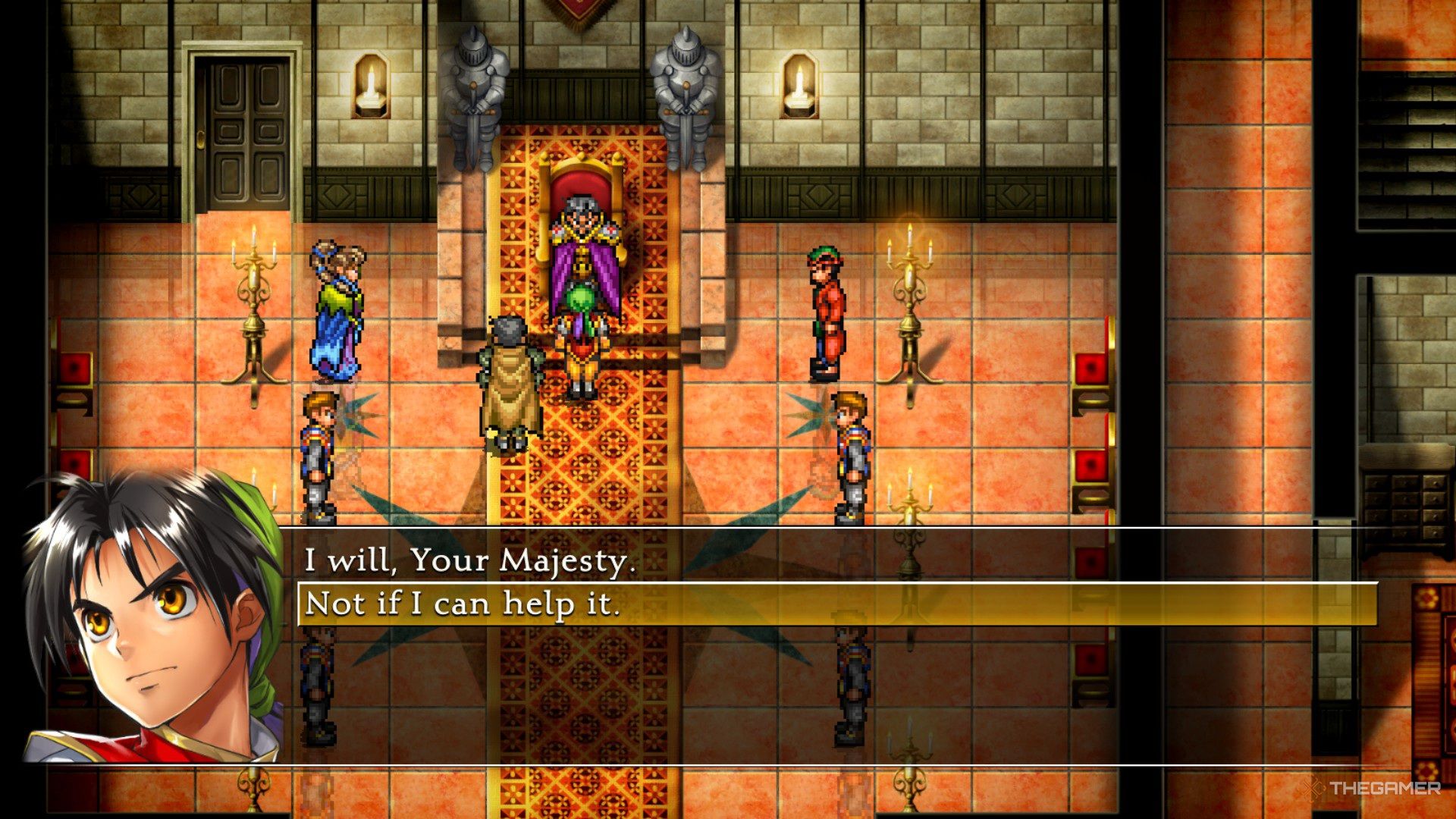
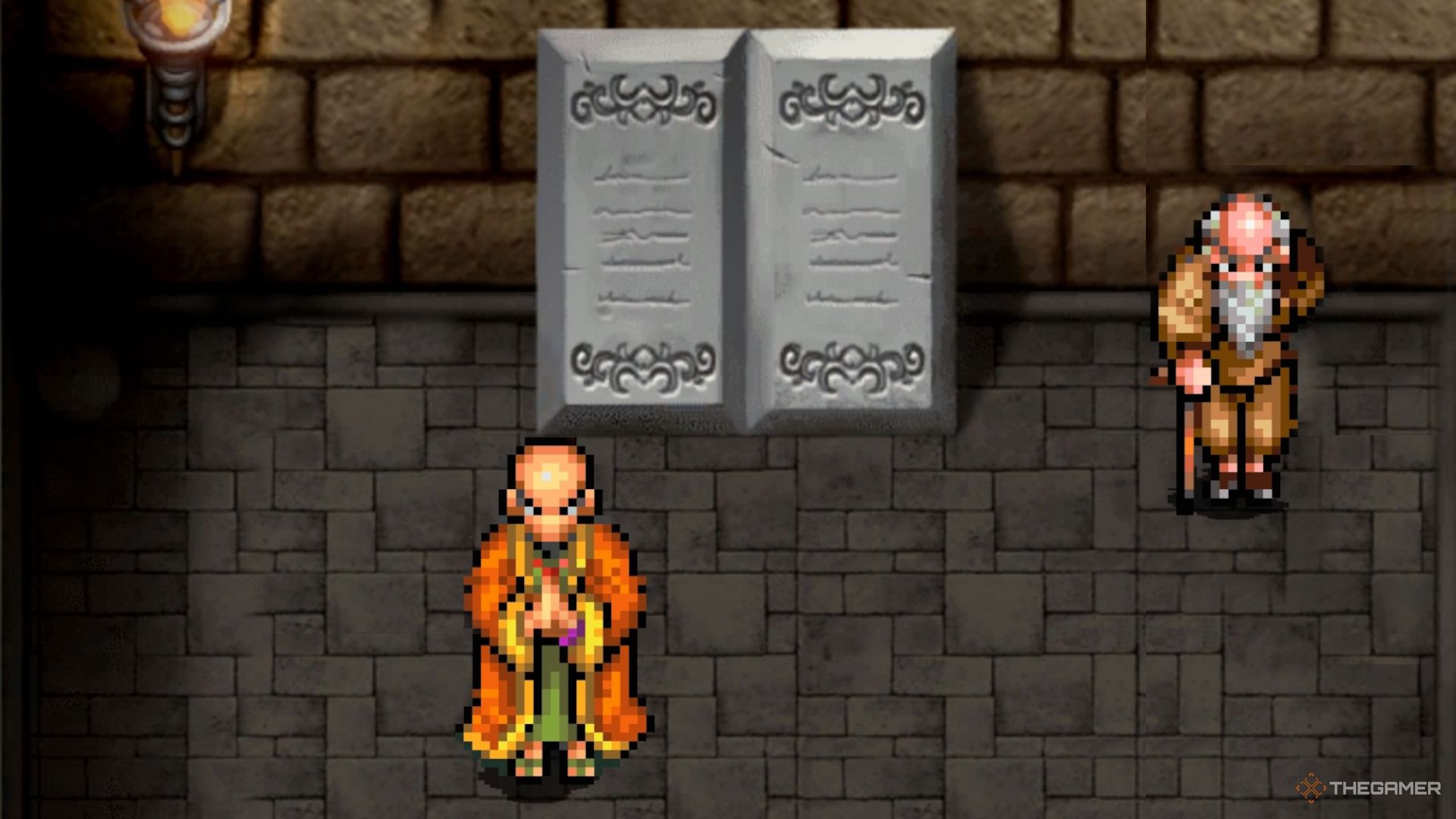





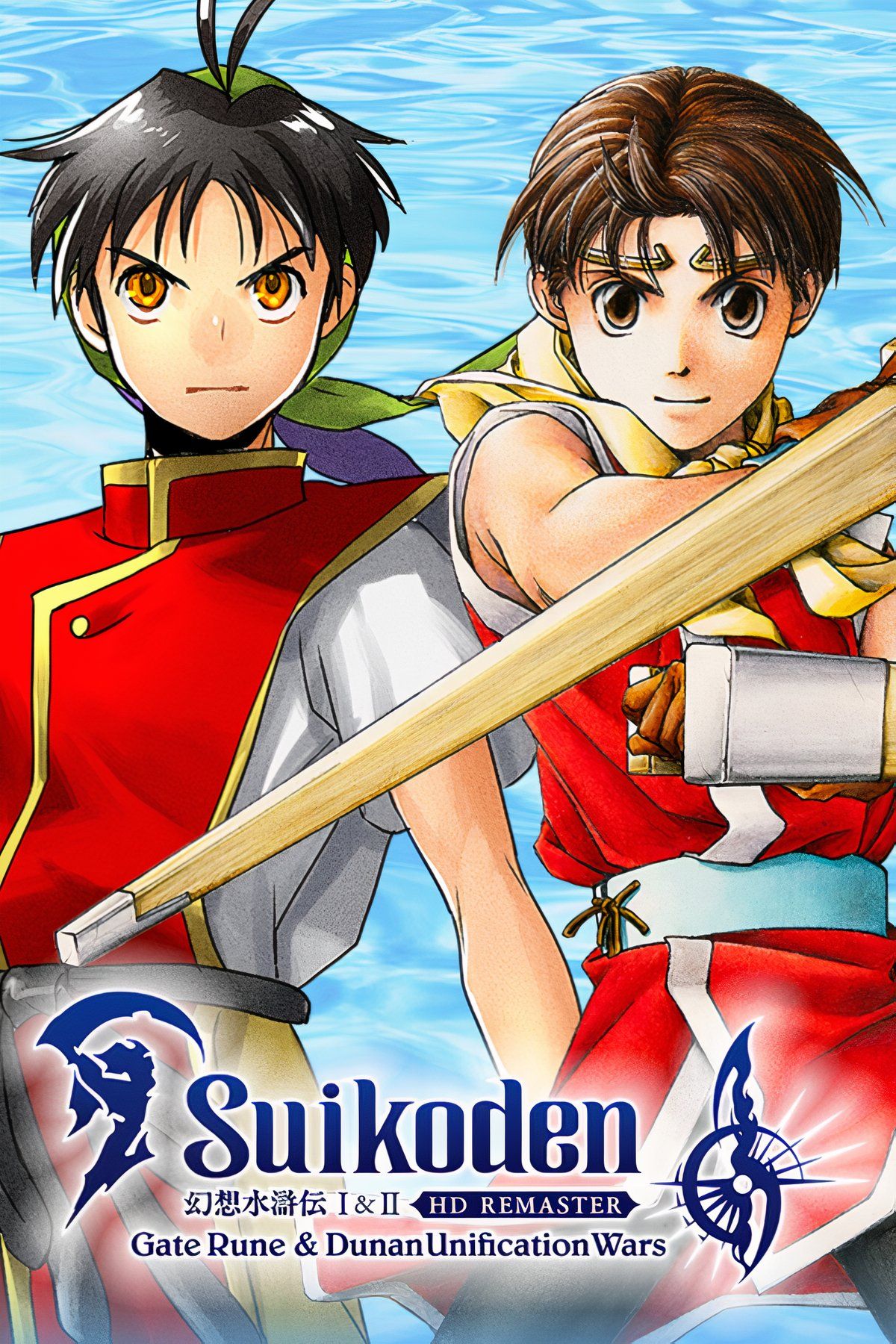







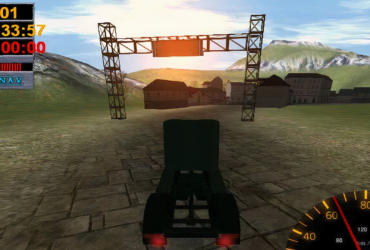
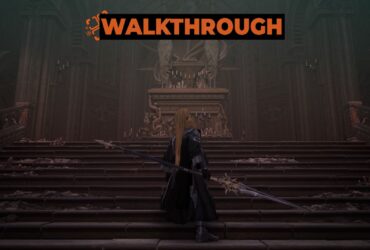


Leave a Reply